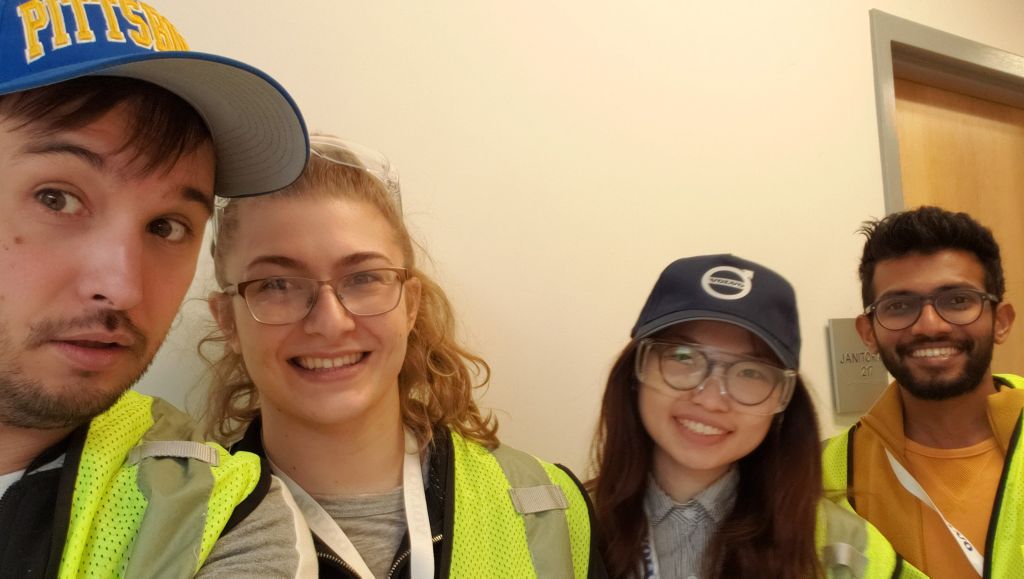How to attract and retain technicians in the construction industry


Students provide an unbiased perspective, challenging preconceived ideas, and creating new concepts that help us see the problems with a new lens. Since 2015, Volvo has partnered with The Integrated Innovation Institute at Carnegie Mellon University in Pittsburgh, PA. This partnership engages students enrolled in the Masters of Integrated Innovation for Products and Services (a graduate-level program that blends design, business, and engineering) to analyze existing industry challenges and suggest innovative products or services.
This year, the five students were tasked to identify critical challenges surrounding attracting and retaining technicians that will support the machines of the future in the construction industry.
The problem statement defined how Volvo might become the first choice for future technicians in an industry transformed by connectivity, electrification, and automation
“The students began by interviewing service teams in other industries, where technology is changing the way maintenance is performed, gaining insights applicable to the construction environment,” said Fredy Daza, Senior Innovation Manager at Volvo Group Connected Solutions Innovation Lab in Silicon Valley. They facilitated the cooperation between the Volvo Construction Equipment team and CMU students in this yearly challenge.
“The problem statement defined how Volvo might become the first choice for future technicians in an industry transformed by connectivity, electrification, and automation,” Fredy explained. “The statement identifies both an immediate and long-term challenge. The short term problem is an industry-wide technician shortage. The long-term challenge is that the landscape of the construction industry is changing and adopting new technologies at a faster pace, requiring new skills and team structure. To adapt to this new landscape, the skills technicians will need in the future will be different.”
The students looked to a solution that was driven by key pain points, brand, and diversity. “So that when the future comes, Volvo will have a plan in place and can execute,” said Lee Trawick, one of the CMU students. The solution needed to include a strategy to elevate Volvo’s brand perception in the construction space and ensure that as the industry changes, they’re able to recruit a new segment of people and support them. The students’ solutions challenged Volvo CE to break the mindset of, “this will not work in our industry,” and embrace new ways of thinking.
Their ultimate conclusion had four main components: Team structure – changing how people work together and collaborate; Skills – developing the skills and training to transition to the new landscape of construction in the future, with an emphasis on technology; Branding – communicating the cutting edge technologies embedded on the equipment; and Partnerships – finding new technicians through partnerships to draw in new talent.
The CMU students presented their findings and suggestions to Volvo Construction Equipment, which will take it in as an additional perspective to consider in the development for the future. The response from Volvo Construction Equipment was very positive and Scott Young, Uptime & Customer Support at Volvo Construction Equipment is impressed. “From start to finish, there was great cooperation between the students and Volvo CE, and the project was well-supported by Volvo Group Connected Solutions Innovation Lab. These results can be an important part of a solution to attract and retain the technicians that will support our machines now and in the future.”
More about Volvo Group Connected Solutions